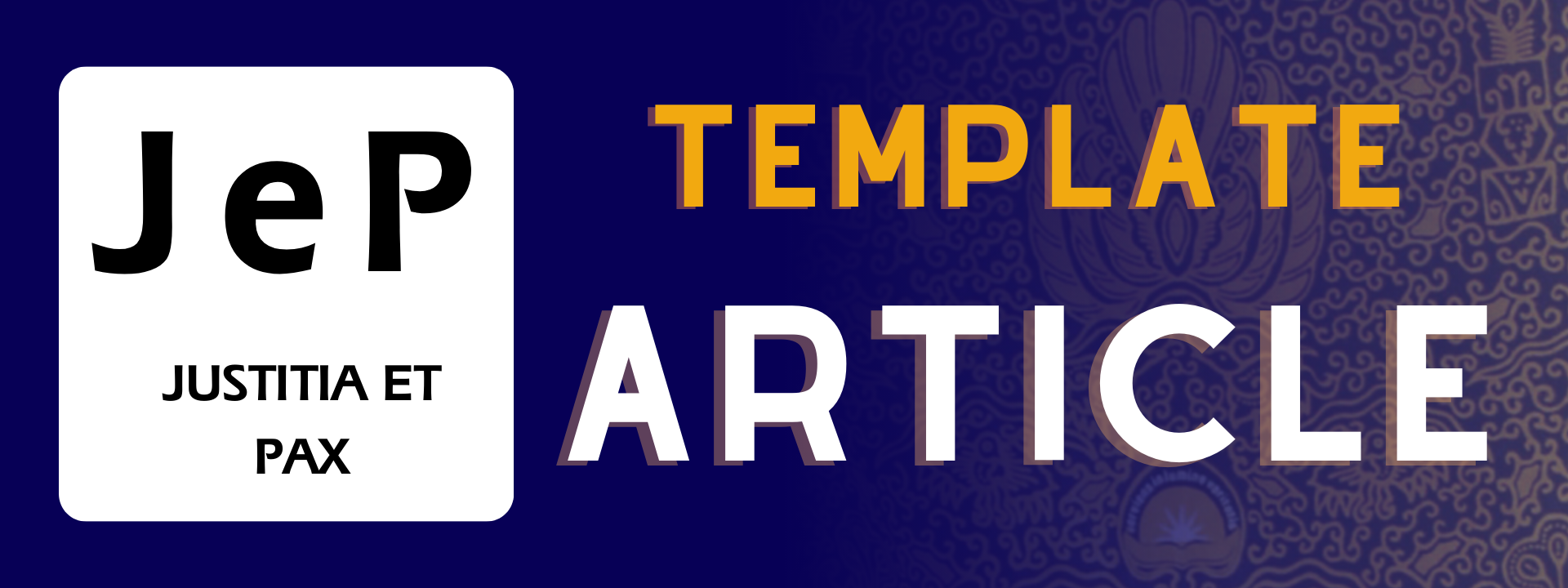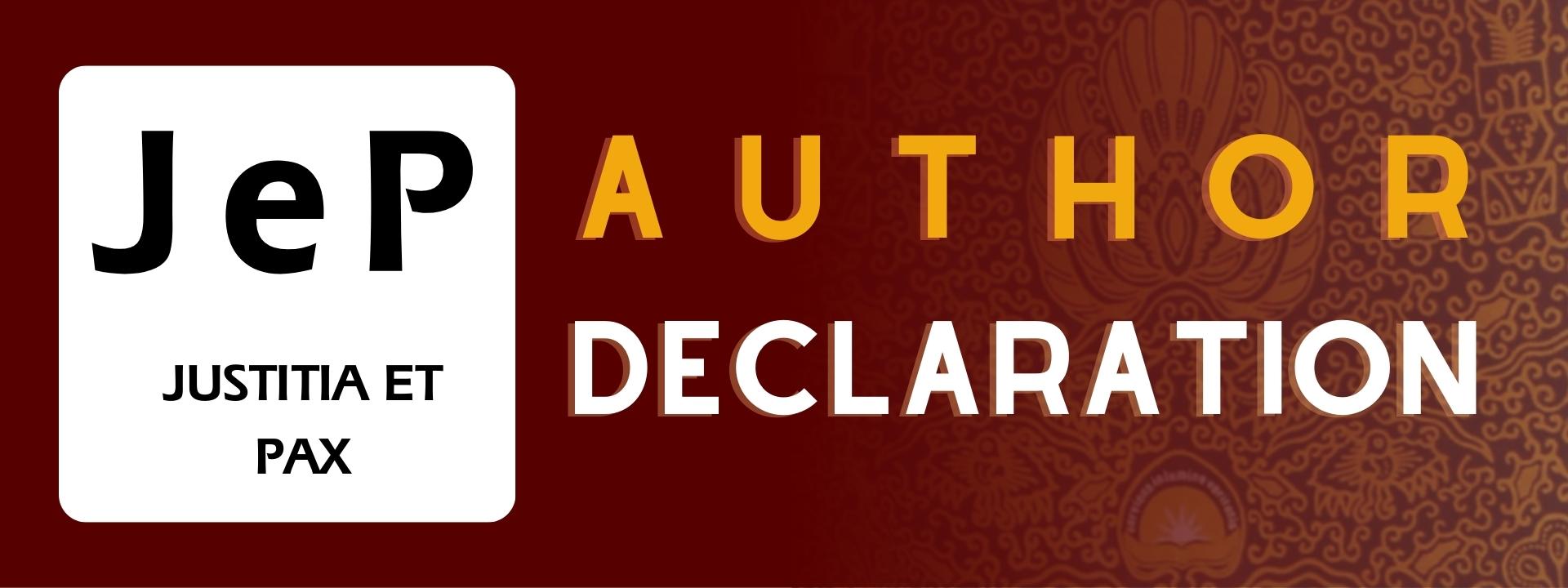EKSISTENSI NILAI-NILAI PANCASILA DALAM PEMBAHARUAN HUKUM EKONOMI SYARI’AH DI INDONESIA
DOI:
https://doi.org/10.24002/jep.v33i2.1358Abstract
Since the emergence of Law No. 3 of 2006 on Religious Courts which states that sharia economy is an absolute authority of religious courts. When such authority becomes the jurisdiction of the religious courts, a complete codification of shari'a economic law is required so that the law has legal certainty and the judges have standard reference in solving cases of dispute in sharia business. Pancasila as a life guidance, norms fundamental staats, ground norm, and life of the Indonesian people requires that every rule under it must be based on the values that exist in Pancasila. Renewal of shari'ah economic law is a political Islam discourse that still must prioritize the existence of Pancasila values in the legislation established. The idea of enacting shari'ah economic law should promote the nationalistic tradition and pluralistic values even in its determination to adopt Islamic law.
Keywords: Pancasila, syari'ah economic law, Indonesia, norms fundamental staats.
References
Books
Abdul Manan, Hukum Ekonomi Syari’ah: dalam Perspektif Kewenangan Peradilan Agama, Jakarta: Kencana, 2016.
Amir Mualim, Metode Ijtihad Hukum Islam di Indonesia: Upaya Mempertemukan Pesan-Pesan Teks dengan Realitas Sosial dalam Buku Pancasila sebagai Ideologi Terbuka: Ideologi dan Tantangannya, Yogyakarta: Kanisius, 1995.
E. Widayat, Hubungan Agama dan Negara: Pandangan dari Sudut Agama, dalam Buku Pancasila sebagai Ideologi Terbuka: Ideologi dan Tantangannya, Yogyakarta: Kanisius, 1995.
Ign Gatut Saksono, Pancasila Soekarno (Ideologi Alternatif menghadapi Globalisasi dan Syari’at Islam), Yogyakarta: CV Urna Cipta Media Jaya, 2007.
Imam Soebechi, Hak Uji Materiil, Jakarta: Sinar Grafika, 2016.
Koento Wibisono Siswomihardjo, Peran Filsafat dalam Hidup Berbangsa, dalam Buku Pancasila sebagai ideologi Terbuka: Problema dan Tantangan, Yogyakarta: Kanisius, 1995.
Maria Farida Indrati Soeprapto, Ilmu Perundang-undangan: Jenis, Fungsi dan Materi Muatan, Yogyakarta: Kanisius, 2007.
Mubyarto, Ekonomi Pancasila: Gagasan dan Kemungkinan, Cet. Ke-3, Jakarta: LP3ES, 1993.
Muhyar Fanani, Membumikan Hukum Langit: Nasionalisasi Hukum Islam dan Islamisasi Hukum Nasional Pasca Reformasi, Yogyakarta: Tiara Wacana, 2008.
Notonagoro, Pancasila Dasar Falsafah Negara: Kumpulan Tiga Uraian Pokok-Pokok Persoalan Pancasila, Jakarta: Pancuran Tujuh, 1974.
Soerjono Soekanto, Beberapa Permasalahan Hukum dalam Kerangka Pembangunan di Indonesia, Jakarta : Yayasan Penerbit UI, 1975.
Sudarto Gautama and Robert N. Hornick, An Introduction to Indonesian Law: Unity in Diversity, Bandung: Alumni, 1974.
Teguh Prasetyo dan Arie Purnomosidi, Membangun Hukum Berdasarkan Pancasila, Bandung: Nusa Media, 2014.
Zainuddin Ali, Hukum Ekonomi Syari’ah, Jakarta: Sinar gRfika, 2009.
Journals and Conferences
Maryanto, Urgensi Pembaharuan Hukum Indonesia Berdasarkan Nilai-Nilai Pancasila, dalam Jurnal Hukum Unissula Semarang, Vol XXV, No. 1, April 2011.
Saafroedin Bahar et.al., Risalah Sidang Badan Penyelidikan Usaha-Usaha Persiapan Kemerdekaan Indonesia (BPUPKI) dan Panitia Persiapan Kemerdekaan Indonesia (PPKI), Sekertariat Negara Republik Indonesia, 1998.
Downloads
Published
Issue
Section
License
Authors who publish with this journal agree to the following terms:
- Authors retain copyright and grant the journal right of first publication with the work simultaneously licensed under a Creative Commons Attribution License that allows others to share the work with an acknowledgement of the work's authorship and initial publication in this journal.
- Authors are able to enter into separate, additional contractual arrangements for the non-exclusive distribution of the journal's published version of the work (e.g., post it to an institutional repository or publish it in a book), with an acknowledgement of its initial publication in this journal.
- Authors are permitted and encouraged to post their work online (e.g., in institutional repositories or on their website) prior to and during the submission process, as it can lead to productive exchanges, as well as earlier and greater citation of published work (See The Effect of Open Access).

This work is licensed under a Creative Commons Attribution-NonCommercial-ShareAlike 4.0 International License.




















